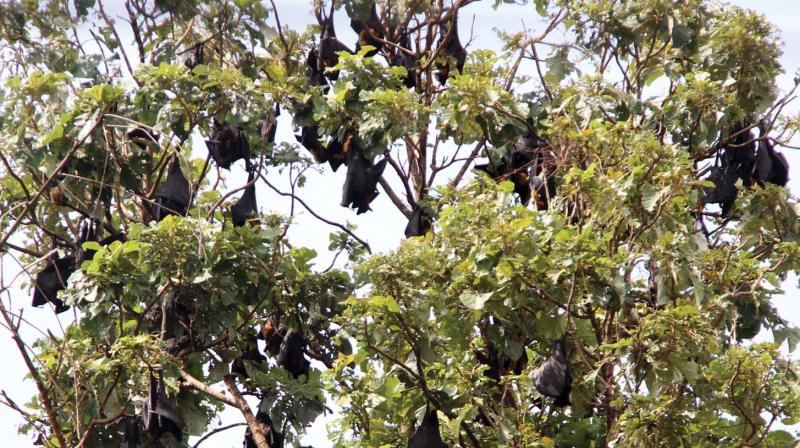Bat natural hosts' of Nipah: Experts
The experts have dismissed the reports about Nipah affecting chicken.

KOZHIKODE: How come Nipah virus survives in the body of bats is the lingering doubt among the people after the epidemic broke out at Perambra. Experts say that bat is the natural reservoir of the virus and it doesn’t harm the mammal due to the presence of antibodies. “The virus becomes lethal when it spreads to other animals or people through contact or food,” said Mr D. Mohan Kumar, former HoD of zoology at Government Women’s College, Thiruvananthapuram. He asserted that Nipah is not an air-borne disease.
“The virus spreads through droplets while coughing or sneezing. This could be interpreted as air-borne,” he said. But it is mysterious how Nipah spread its tentacles at Perambra. “Bats cannot travel long distances. After Malaysia, Nipah hit Bangladesh and West Bengal which borders Bangladesh,” he said. Dr Arun Zakariya, wildlife veterinary expert, who caught the bat in the well of the deceased persons’ home on Monday, said it was an insectivorous bat. “There were no dead bats in the well nor was there any nest of the mammal. The bat was sent to level-5 lab for test,” he said. But Mr Mohan Kumar felt that if the bat is insectivorous, a fruit bat, the disease will be prevalent there still.
Dr V.K. Vinod, assistant professor at Kerala Veterinary and Animal Sciences University, opined “it needs to be probed in detail. These days distances get reduced, exotic fruits reach the markets and people travel widely. A virus can reach through multiple routes and spread in favourable conditions,” he observed. The experts have dismissed the reports about Nipah affecting chicken. “It will only reproduce in mammals such as bat, pig and horse. The virus cannot exist in high temperature nor live in alkaline solution like soap,” they said.
Eating bat meat may have caused it
Researchers say the possibility of people having meat of infected bats cannot be ruled out. There have been unconfirmed reports of large flying foxes meat being sold clandestinely for the cure of asthma. In Indonesia, hundreds of large flying foxes or fruit bats are sold to people claiming that its meat cures asthma. Though there is no scientific evidence to prove the claim, people facing severe asthma problems often succumb to the claims.
According to Sreehari, a researcher, at least six species of fruit bats including Salim Ali Fruit bats are found in Kerala. Experts are wary of the campaign against bats which has gained momentum especially in social media. With several rumours being spread about the transmission of virus, animal husbandry experts have warned against culling of fruit bats and insectivorous bats. Since it is yet to be confirmed that fruit bats or insectivorous bats are responsible for the transmission of NiV virus, officials say people should not resort to culling at any cost. The investigations are on in virology institute and the final report is awaited.

